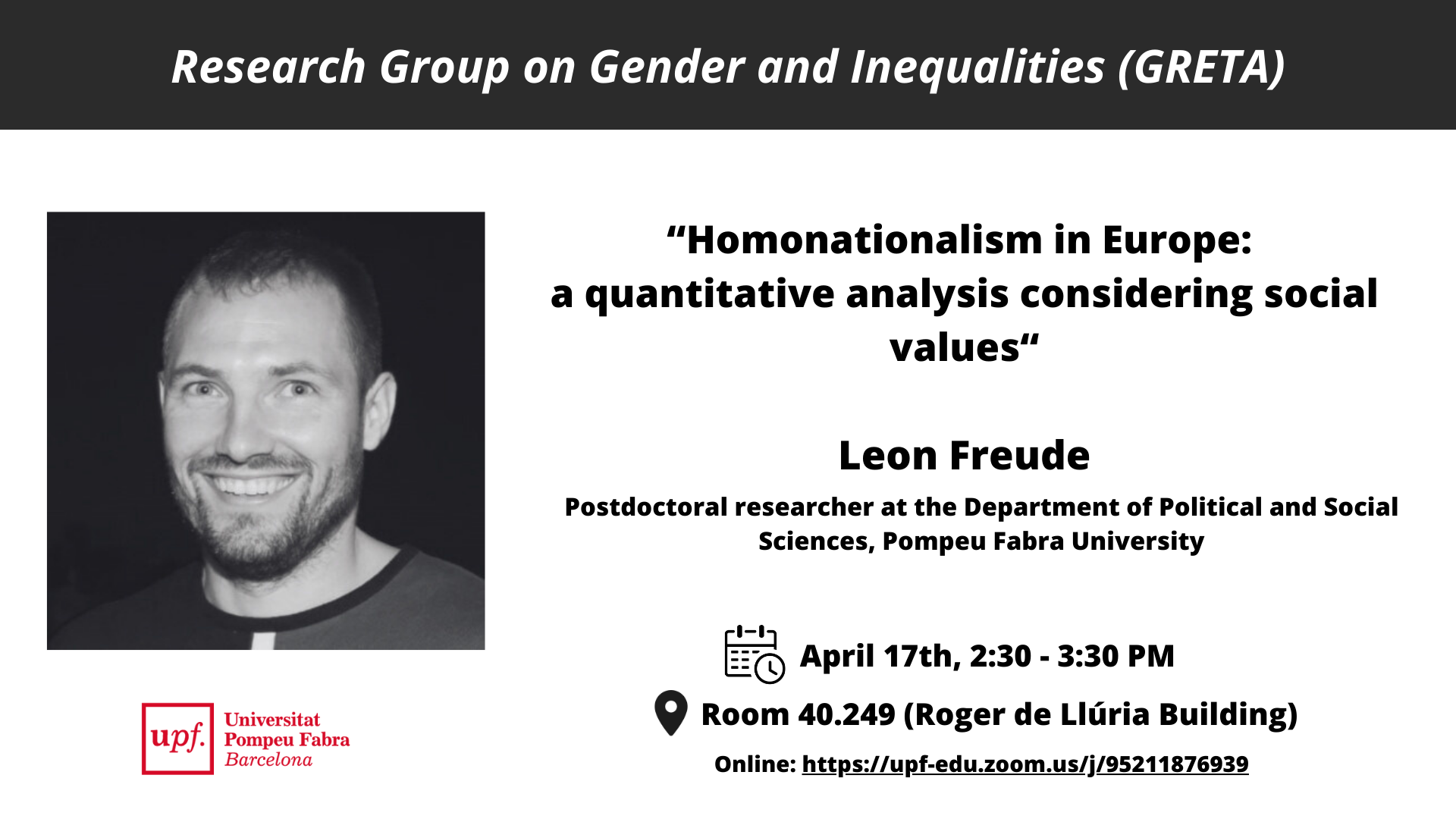17/04/24 - GRETA Seminar "Homonationalism in Europe: a quantitative analysis considering social values"
17/04/24 - GRETA Seminar "Homonationalism in Europe: a quantitative analysis considering social values"

Next week, for our monthly open seminar, we will be hosting Leon Freude, a Postdoctoral Researcher at the Department of Political and Social Sciences, UPF. He holds a PhD in Sociology from the Universitat de Barcelona, focusing on Homonationalism in European values. Additionally, he has a Master's degree in Gender Studies from the Interuniversity Institute of Women's and Gender Studies, and another Master's in Research Techniques for Applied Social Sciences from the Universitat Autònoma de Barcelona. His main research interests include addressing contemporary queer-feminist debates through quantitative methods, as well as innovation in teaching.
The presentation will take place on April 17th, 2:30-3:30 pm, in Room 40.249 (Roger de Llúria building). If you can´t attend in person you can join us online: https://upf-edu.zoom.us/j/
Abstract: In a context of the growth of ultraconservatism in Europe, this presentation deals with homonationalist values. Homonationalism is a complex and multifaceted concept proposed by Jasbir Puar at the turn of the 21st century which, expresses an inclusive position towards sexual and gender diversity and, at the same time, an exclusive position regarding ethnic and racial diversity. In front of this emerging concept, and the scarce comparative and quantitative academic research that goes into it, I want to check if and how homonationalism can be found in European values. I therefore ask whether we can identify homonationalism from value surveys and what is the magnitude of homonationalist values in Western Europe. Following a conceptualization and operationalization of indicators, a series of quantitative analysis have been applied. The main result highlights that, despite the differences between countries and that there are signs of homonationalism in the values of certain groups of Europeans, the homonationalist phenomenon has not become the majority. Instead, people who have inclusive values with sexual and gender diversity tend to have less racist and nationalist attitudes. In addition, based on this conceptualization and quantitative analysis, specific measures are proposed that allow to contrast the existence of homonationalist values in a more accurate way. For all this, the research process provides results that advance the knowledge of the phenomenon of homonationalism and its analysis and, at the same time, are relevant to inform the social movements concerned with it and public policies. The results are an opportunity for proposals for the regeneration of alliances between emancipatory social movement movements, which should be explored and researched in the future
